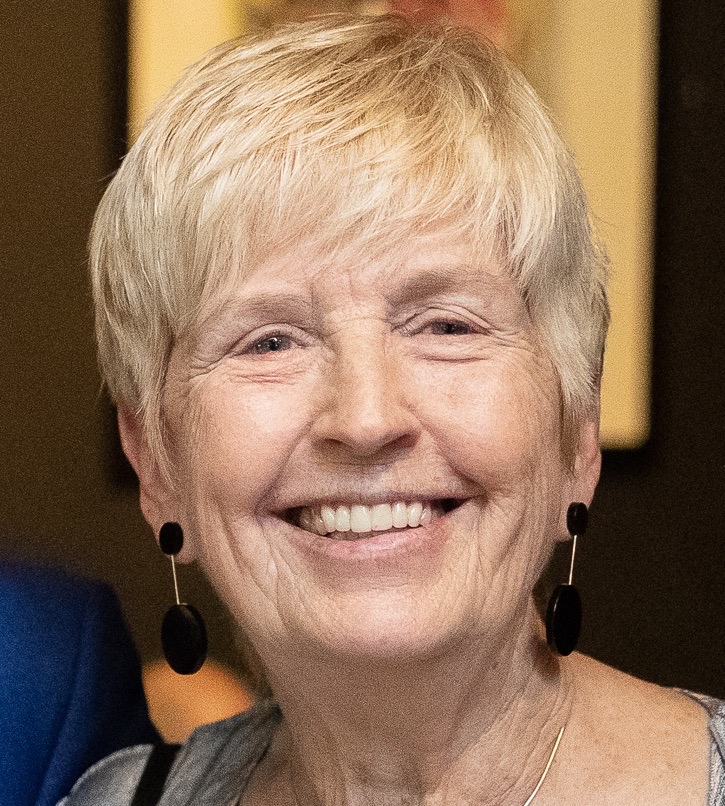Governance
Board Nominees
Voting for the Directors to appear on the Board of Directors slate will take place online from April 25 to May 15, 2025. Voting information will be emailed directly to all eligible voting members.
The results, representing the will of the membership, must be officially ratified at the CIP Annual General Meeting on May 29, 2025.
Learn more about the nominees below.
Positions:
This year, CIP is furthering its commitment to reconciliation and equity, diversity, inclusion, and accessibility (EDIA). We recognize the need for diverse voices and specific insight to guide equitable governance and embed EDIA principles in planning practices. While all Directors are expected to champion CIP’s strategic priorities of EDIA and reconciliation, the 2025/2028 Director-at-large position is being specifically dedicated to an individual with significant expertise, skills, and/or lived experience in EDIA and/or reconciliation, who is knowledgeable about their application to planning.
CIP is a proud signatory of the Government of Canada’s 50-30 Challenge and offers equal volunteer opportunities to all qualified individuals without regard to race, colour, ethnicity, religion, gender, age, national origin, disability, sexual orientation, or appearance.
Region 1: BC/YT

Andrew Ramlo RPP, MCIP
Expression of Interest
It is with pride that I provide this expression of interest for a 2025-2028 Board position with CIP. Over the past two decades I have worked in various capacities to advance the profession, and I see this as the next step in this advocacy.
As a demographer, data analyst, and thought leader, I would call myself a non-traditional planner. I have been an advisor to governments and industry leaders across sectors and have strong connections in planning, real estate, and development. Serving on the Board would allow me to contribute strategic insights, facilitate partnerships, and advocate for policies that strengthen the profession and our connections to the industries we work alongside.
In my work with PIBC I contributed to CIP’s early work on Scope of Practice and establishment of the PSB and PSC. During my term as PIBC President I worked to build ties with government agencies and the local development community. I have also had the great pleasure to work as an adjunct professor, guest lecturer, and mentor to many planning students.
I am known for my ability to take complex data and technical concepts and communicate them in an accessible, way. Through my research and presentations, I help diverse audiences understand the relationships between changing demographics, economics, land use, planning, and development. I believe such storytelling and communication would be an asset to the Board as we work to strengthen the profession’s influence. I welcome the opportunity to bring my experience, perspective, and commitment to the CIP Board.
Brief Biography
Andrew has been an advocate of community planning and planners for the last two decades and is currently Vice President of Advisory Services for the rennie group in Vancouver. At rennie, Andrew provides analytical and strategic planning support for real estate developers, investors, retailers, local and provincial governments, crown corporations, and public agencies. As part of this advisory work, he has researched, written, and presented extensively on topics ranging from shifting demographics and consumer behaviour to regional development and local community planning. This work is informed by Andrew’s BA in urban and economic geography and his MA from UBC’s School of Community and Regional Planning (SCARP).
In his ongoing role as Executive Director of the non-profit Urban Futures Institute (established in 2001), he conducts publicly available research on topics ranging from labour force change and human resource management to housing, health, and aging populations. Most of this research is conducted through the lens of asking: how will these topics be reflected in community change? Following through the threads of that question, Andrew has also taught at the University of British Columbia (Quantitative Analysis for Planners), and often guest lectures at Simon Fraser University, the British Columbia Institute of Technology, and Vancouver Island University.
His long involvement with both CIP and PIBC – from SCARP student representative in 1999 to PIBC President in 2018, with PIBC Secretary Treasurer and Membership Committee Chair, and CIP’s Professional Standards Committee along the way – demonstrate his unwavering commitment to the field of planning and its development.

Arlene Janousek RPP, MCIP
Expression of Interest
I am passionate about advancing the field of planning and eager to bring my skills, expertise, and insights to the Board of Directors for the Canadian Institute of Planners. With a strong background in housing policy, I am particularly interested in contributing to the Institute’s efforts to address Canada’s housing challenges while also helping to expand the profession’s strategic advancements across a breadth of pressing issues—including climate change, diversity, equity, and inclusion (DEI), and Truth and Reconciliation. My commitment to data-driven decision-making and innovative solutions has been a cornerstone of my career, and I believe these approaches, including using technology in new ways, will be essential in shaping the future of our profession.
Ultimately, I see this as an opportunity to give back to a profession that has given so much to me. I want to help inspire and support the next generation of planners, ensuring that more people see planning as a meaningful and impactful career. By strengthening the role of planning in shaping resilient, inclusive, and sustainable communities, I hope to contribute to a thriving profession that continues to evolve and meet the needs of our society.
Brief Biography
I am a solutions-oriented Registered Professional Planner dedicated to elevating planning and policy work through data-driven decision-making. My expertise spans housing policy, land use management, and project management for major planning initiatives. Over the past seven years with the City of Kelowna, I have emerged as a leader in the field, supporting Kelowna’s most recent Official Community Plan update, leading the City’s award-winning 2021-2031 Housing Needs Assessment, and most recently managing Kelowna’s suite of initiatives under the Housing Accelerator Fund.
Beyond my day-to-day work, I am deeply committed to contributing to the planning profession. For the past five years, I have been actively involved with my local Planning Institute of British Columbia (PIBC) Chapter, including two years as Chapter Chair. Through this role, I have developed and led various learning and networking events, fostering stronger connections and skill-building within the local planning community.
I consider myself a lifelong learner, shaped by my studies at UBC Okanagan and Simon Fraser University. One of the most rewarding aspects of being a planner is the opportunity to engage with diverse projects and continually expand my knowledge. In particular, I am dedicated to deepening my understanding of Truth and Reconciliation and integrating these learnings into my planning practice. I am immensely privileged to live, work, and play on the ancestral, unceded, and territorial lands of the Syilx Okanagan people, and I approach my work with deep respect for the natural and urban environments I help shape.

Barbara Everdene RPP, MCIP
Expression of Interest
I have attended the last two CIP national conferences (2023 and 2024) and was very impressed by the integrity of CIP’s commitment to equity, diversity and inclusion. I believe that the organization and the profession has an important role to play in supporting the profession through turbulent economic and social times. I have worked in a variety of challenging contexts (e.g. with West Coast Environmental Law during federal environmental charity audits and in Afghanistan) and being part of the planning profession was a very important framework for my identity and work as a planner. I have lots of governance experience to offer as I both served on two Boards and have supported a Board of Directors (lawyers) for over a decade at West Coast Environmental Law.
Brief Biography
Barbara Everdene, RPP, MCIP has a Masters in Community and Regional Planning from the University of British Columbia. Over her 25 year career, Barbara has led a diverse range of environmental, social, economic, land use, and Indigenous planning initiatives in public, non-profit and private sectors. She is Principal of Everdene Consulting and supports local and regional governments and industry associations on inclusive market and economic development and social planning. From 2021 to 2024, Barbara served in the role of Long Range Planner at the City of Vernon and broke new ground in inclusive engagement for the Official Community Plan renewal, and led Vernon’s first Housing Action Plan and Age and Dementia Friendly Community Plan based on principles of Reconciliation, justice, equity, diversity and inclusion and was responsible for implementation of the Climate Action Plan.
Prior to this role, Barbara managed the Access to Justice program and Environmental Dispute Resolution Fund at West Coast Environmental Law for over a decade. Over 2007 to 2017, Barbara worked internationally in community development across the Middle East, Central and South Asia, supporting entrepreneurs and community organizations to identify and develop market opportunities across a range of sectors. Barbara is committed to allyship and authentic partnership to build communities that work for everyone.

Leila Todd BSc MLA PhD
Expression of Interest
Often during times of financial constraints, there is a tendency to prioritize quick operational solutions, often at the expense of equity, diversity, inclusion, and accessibility (EDIA). Planning has the potential to bring hope, offering long-term solutions that are sustainable and just. Through members of my family, I have come to witness the vital advocacy required for individuals with various challenges. I look forward to adding these professional and personal experiences to the wealth of existing CIP Board expertise.
During my graduate studies, I conducted independent research, including a nationwide review of provincial legislation, local municipal policies, and plans related to urban greening in the context of climate change adaptation and mitigation. Despite regional differences in climate, I firmly believe that as Canadians, we need to collaborate and support one another to find solutions that benefit all and particularly those living in areas of most impact. My municipal experience has shown me a broad spectrum of desire for adapting to change. It has helped me understand and balance various perspectives and recommending most supported solutions. My interest in serving as a CIP director stems from my passion for influencing and leading policies and plans that will progressively enhance the life of Canadians for generations to come.
Brief Biography
I am an immigrant to Canada and live on the ancestral lands of the kʷikʷəƛ̓əm First Nation. Through my passion for nature and urban ecology, I have come to learn about Indigenous people’s environmental stewardship since time immemorial. Although Reconciliation work is a personal journey, without formal support and encouragement, it can be missed. My experience working at the City of Vancouver has been instrumental in my journey of Reconciliation and in deepening my gratitude for the lands on which I live and work.
I hold a BSc in Biology from Simon Fraser University, a Master’s of Landscape Architecture from the University of Guelph, and a PhD in Urban Forestry from the University of British Columbia. I am a senior Landscape Architect and my professional experience includes planning for public amenities with the City of Hamilton, City of Vancouver, and City of Coquitlam. While working on the Vancouver Parks Washroom Strategy, I gained significant insights into addressing basic human needs, the social complexities involved, and the considerable gaps cities face in providing essential services. While leading Vancouver’s Community Centre Strategy, by applying an equity index to prioritize community centres renewals, I highlighted where investments are needed. Through working on Hamilton’s Trails Master Plan, I learned about barriers to accessing trails and recommended solutions to reduce them.
Region 7: Atlantic

Brandon Umpherville LPP, MCIP
Expression of Interest
I am excited to express my interest in serving as a Director for the Atlantic region on the CIP Board. As a Senior Planner with Halifax Regional Municipality, I focus on advancing equitable, sustainable, and inclusive planning practices, particularly in affordable housing policy, community planning, and engagement.
Throughout my career, I have demonstrated leadership in strategic planning and policy development in one of Canada’s fastest growing municipalities. I am passionate about evidence-based approaches to complex planning challenges and have experience working collaboratively across public, private, and non-profit sectors. My commitment to transparency, mentorship, and inclusive decision-making aligns with CIP’s values.
CIP’s focus on reconciliation, equity, diversity, inclusion, and accessibility is important to me and aligns with how I approach my work. I am committed to furthering these principles within CIP’s framework and supporting the organizations efforts to achieve meaningful outcomes.
With experience volunteering on boards and committees, collaborating on cross-disciplinary projects and teams, and navigating public policy, I am well-equipped to contribute to CIP’s strategic direction. I also work to connect new planners with mentorship opportunities that provide a solid foundation for their careers. I am eager to collaborate with other board members to advance CIP’s mission and strengthen the planning profession across Canada. I believe that my network and experience working with planners in all four Atlantic provinces puts me in a good position to represent this amazing part of Canada on the CIP Board of Directors.
Brief Biography
I’m a Senior Planner with Halifax Regional Municipality, where I focus on land use modernization, community engagement, housing and transportation policy, and planning with Indigenous and other equity-deserving communities. After six years with an incredible team at the municipality, I will soon be transitioning to a new role with the provincial government, where I’ll be focused on supporting housing growth.
With a strong commitment to inclusive and sustainable development, I have contributed to key planning initiatives such as the Centre Plan and Suburban Plan, as well as region-wide housing policies aimed at improving housing availability and affordability. I also help lead a peer support group for candidate planners across the province as they navigate the professional licensing process.
Outside of work, I’m actively involved in my community, volunteering on the boards of my curling club and queer curling league. I am passionate about fostering strong community connections, especially in our post-pandemic world. I grew up in a rural community in Saskatchewan, studied planning in Toronto, and now call Halifax (Kjipuktuk) home with my partner Shane and our dog Oliver.
Fellow

Beate Bowron RPP, FCIP
Expression of Interest
I have been on the CIP Board of Directors in the ‘Fellow’ slot, since the summer of 2023 and have been a member of the Governance Committee. I would like to continue in this role. The next three years will be exciting for CIP with lots of opportunities for change and growth. We have a new President and Executive Committee and will confirm/adjust CIP’s strategic directions through our mandated Strategic Plan Review. Our Reconciliation Action Plan will be completed with some actions, hopefully, being implemented quickly. Efforts to further CIP’s EDI and Accessibility goals are continuing. The College of Fellows’ recent initiatives are taking off and are being received favourably. So, there is lots to do.
I have been an active member of CIP’s College of Fellows in a variety of ways, including as a presenter, mentor and moderator during CIP’s annual conferences. I have been responsible for raising funds for the College of Fellows Undergraduate Bursary for the past six years, and, in 2021, I initiated the College of Fellows Indigenous Planning Student Award through Indspire, the well-known Canadian Indigenous charitable organization.
The continuing growth and resilience of CIP is important to me personally, to Canada’s planning profession and to Canadian society.
Brief Biography
Beate Bowron is a former Director of Community Planning for the City of Toronto with over 30 years’ experience in urban planning. She is the President of Beate Bowron Etcetera, a small consulting company with extensive experience in participatory community planning, municipal management, local economic development, consensus building and climate change adaptation. She works both in Canada and internationally.
Beate is a seasoned facilitator and trained mediator, whose practice emphasizes consensus building to avoid costly litigation and tribunal processes. As a Director of Community Planning in the City of Toronto (1998 – 2003), she was responsible for all community planning functions in the ‘old’ City of Toronto. More recently, Beate has been the project manager and public participation lead in a number of municipal ward boundary and Trustee Area reviews in Ontario.
As part of CIP’s groundbreaking work in climate change adaptation planning, Beate was responsible for climate change adaptation planning projects in the Atlantic Region and Nunavut, Canada’s Arctic. Her international experience, in a variety of consulting roles, spans China, Guyana, South Africa, Ethiopia, Vietnam, the Philippines and Ukraine. Projects have focused on public involvement, strategic planning, climate change, tourism development and sustainable, resilient cities and regions.
Currently, Beate assists community groups in navigating Toronto’s and Ontario’s planning maze.
Director-at-Large

Champa Maduranayagam RPP, MCIP
Expression of Interest
On June 29, 2022, three days before I was scheduled to shoot a video at the CIP Elevate National conference for the Professional Standards Board on my Urban Planning career, there was an attempted murder on my life in Ottawa, Canada. This night forever altered the trajectory of my life, my family, my career and the aftermath is still something I am dealing with professionally and personally. I have since become partially disabled with severe damage to my brain and body. This was not the first such incident I have experienced in the Planning workplace or in the Government sector, in another Planning Office a large scale infrastructure development resulted in violent death threats issued by a member of the public against the practitioner and their family including showing up at their private residence, this was not the last such incident in my Planning career.
This series of experiences has made me recognize the need for greater support, protections and safety for planners tasked with working in highly complex, contentious and continually evolving and changing teams and communities without fear of reprisal or retribution for ethical, legal and values based Planning work. As part of my commitment to the profession, and Canadians, I am dedicated to advocating for the following as a Director-at-Large:
- prioritizing health and safety of the individual planner and planning environment;
- return on investment for licensure including professional development at low or no cost; and
- greater opportunities for career advancement, promotions, mentorship across a Planning career cycle.
Brief Biography
I have lived, worked, travelled, and schooled across 9 of the 13 Provinces and Territories in Canada. I am a fourth generation government servant who has served in five municipalities across three provinces. As a Transportation Planning, and licensed RPP / MCIP I have worked on projects of varying scale, complexity, timelines and budgets including from $500 to $5 Billion. I have planning experience in small sprawled rural communities, northern mid sized cities, and dense urban centres. I am also trained in Women, Gender Equity studies, and worked along the Highway of Tears prioritizing indigenous reconciliation as a cornerstone of my planning practice. I am an alumna of the Canadian Institute of Planners Emerging Leaders Program 2021, the Institute for Change Leaders 2017 and the Rideau Hall Forum for Young Canadians 2006. I represented Canada on the Commonwealth Association of Planners Young Planners Steering Network Committee from 2020-2022, and was the Co-Chair of the International Co-Operation sub-committee. I have also occupied both elected and appointed positions in multiple unions across Canada as a Trustee, Steward, and Vice Chair.
I also co-own a small local business situated in one of the poorest, most criminalized and disenfranchised areas in the country, but that has operated for 21 years between two locations and continues to serve in areas where most Canadians would not venture. I occupy many roles and am accountable for multiple responsibilities but my most important role is my duty to the Canadian Public. Find out more at ChampaMaduranayagam.com

Raida Chowdhury
Expression of Interest
I am interested in serving as a Director-at-Large on the CIP Board because I believe in the importance of furthering equity, diversity, and inclusion in the planning profession. I have seen first-hand how planning is better informed when there is diversity in whom we talk to and with whom we work with. Importantly, we know that planning will fall short and perpetuate harm when there is an absence of these values.
As a practicing planner, a woman of colour, and an immigrant, I can speak to my lived experience to inform the implementation of the CIP’s “Equity, Diversity and Inclusion Roadmap”, including what drew me into the profession, what hurdles I have faced, and what has kept me here. I have previous experience in EDI consulting and policy, and know the value of this work; the profession benefits immensely from active effort to recruit and retain underrepresented planners. The Roadmap accurately acknowledges that these efforts cannot only exist on an individual level, but must be ingrained on a structural level.
As the CIP is the national advocate for the planning profession, I know the governance and policy piece is essential to furthering a diverse and inclusive culture, and I am eager to put in the work.
Brief Biography
Raida Chowdhury (BES) is a Candidate Member of the Canadian Institute of Planners, and a graduate from the School of Planning at the University of Waterloo. She is working as a Planner at Nethery Planning, focusing on land use policy projects across Ontario. Her previous positions include municipal planning at the City of Kitchener, as well as provincial policy and research at the Legislative Assembly of Ontario.
Throughout her university career, Raida was a champion for Equity, Diversity and Inclusion initiatives. From 2021 to 2023, she was a member of the School of Planning’s EDI Committee, where she helped to establish and implement the School’s first Statement of Values, in collaboration with students and faculty. She was also an EDI Consultant for the University’s Centre for Career Development, where she aided the Centre in rewriting a Professional Development course related to equity in the workplace. For several terms, she served as a Teaching Assistant and Peer Mentor, which allowed her both formal and informal mentoring opportunities with other marginalized student planners, particularly women of colour.
She is a proponent for progressive (planning) policy, demonstrated through her work in expanding lodging house permissions in the City of Kitchener. She is also an active member of her community as a volunteer for environmental and housing justice organizations. In both a professional and personal capacity, Raida believes in the duty to help foster equitable environments and communities.